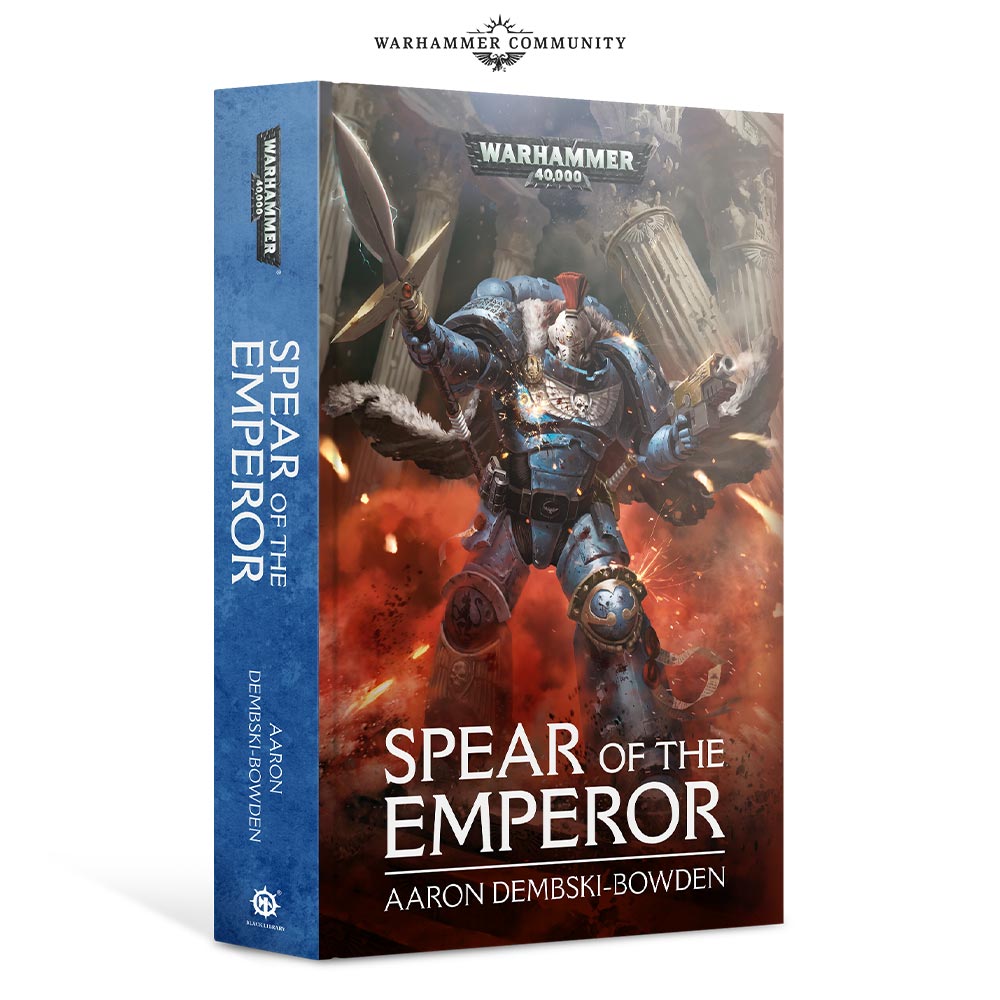This review contains spoilers for Spear of the Emperor.
SKAVAKH UHL ZARUN! Redden the earth, redden the earth, redden the earth!
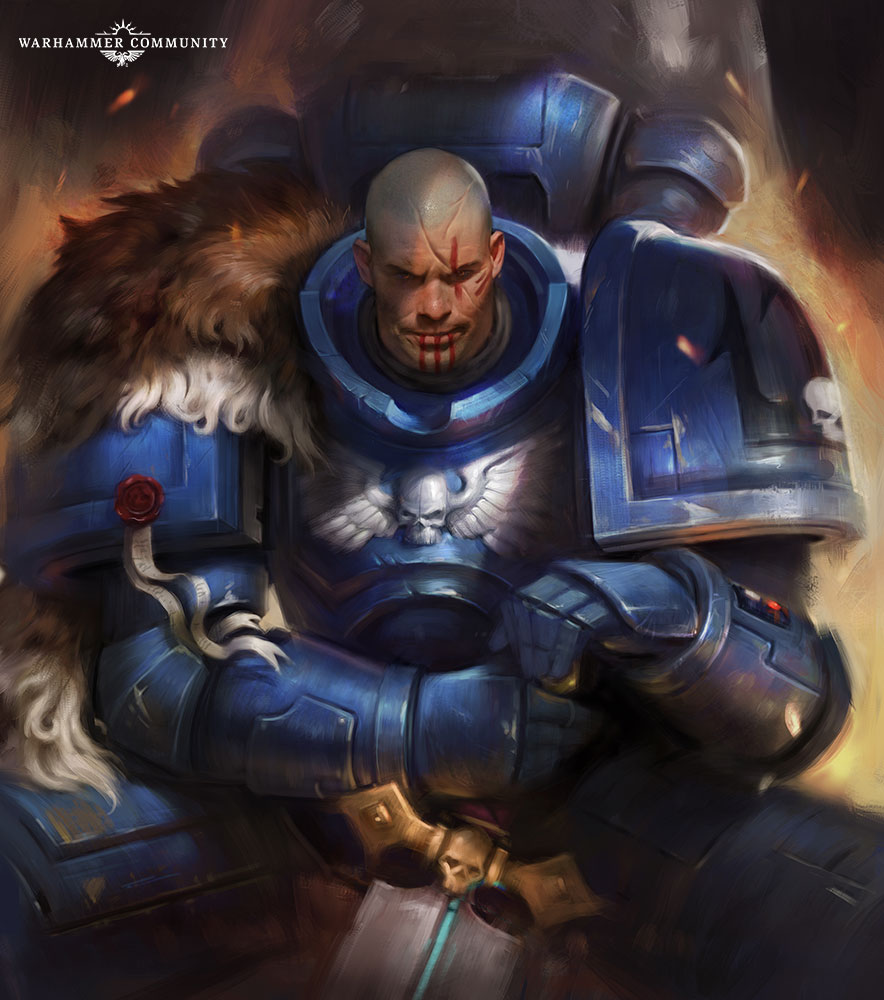
Rarely does a single phrase manage to capture the spirit of a whole Space Marine Chapter so well as the war cry of the Emperor’s Spears. Indeed, it captures the whole spirit of the novel.
This week’s book review is, as you may have guessed by now, about Spear of the Emperor, Aaron Dembski-Bowden’s tale of a Mentor Legion Space Marine who is sent across the Cicatrix Maledictum on a supposed mission of reconnaissance, intended to find out how the three Chapters assigned to protect the Elara’s Veil region are getting on following the opening of the Great Rift. It’s been a century since anyone heard from them, and as the Imperium struggles to hold itself together, Lieutenant Commander Amadeus Kaias Incarius is dispatched to see if this part of the Imperium Nihilus is still holding out.
This review will feature two different authors working through some of the themes presented – myself and Coda. We come at this from quite different perspectives, and hopefully between the two of us we can tease out some of the really interesting stuff ADB brings in to the narrative.
By way of overview, I will quickly summarise the plot. The viewpoint character is Anuradha, a serf of the Mentor Legion assigned to the aforementioned Amadeus as one of his three helots, a kind of combination body servant, battlefield assistant, and general henchman (or in this case, henchwoman). Even for Space Marines, the Mentors are famously unapproachable and aloof, and many of the book’s early passages are about Anuradha reflecting on her experiences with the Chapter. There’s a great sequence where she reflects on the one time she was previously assigned to work with Amadeus, and watched him unleash a truly stunning level of violence; she comments that after this experience “I never again made the mistake of confusing a Space Marine for a human.” It’s a great moment and an early introduction of a theme that will run throughout the novel – the transhuman nature of Space Marines and the ways in which it makes them utterly alien to the humans they once were. It’s a theme I’ve always liked, and it’s deftly explored here.
After a tough journey through the Straits of Epona, a safe (for certain values of “safe”) passage through the Cicatrix Maledictum, the Mentor ship In Devout Abjuration arrives in the Imperium Nihilus, on its way to Nemeton, Chapter-planet of the Emperor’s Spears. It quickly becomes apparent that things are not going well – an Imperial fleet has, against Imperial law, been press-ganged into the Spears’ service, and it looks battered and bloodied. Nemeton itself is surrounded by a minefield. The Spears are hostile and untrusting of this outsider claiming to be from the Imperium, which they have heard nothing from in a century.
On Nemeton itself, we learn more about the Spears, their barbarian homeworld, and the people whose lives they are indelibly intertwined with even as they are forever held separate. Mothers hide their sons and cover their eyes so as not to look upon the Spears, for fear of losing them to the sky warriors. It’s a bleak outlook for our outsiders to encounter, who are used to Space Marines being venerated unquestioningly.
As it turns out, things really are not going well. The three Chapters of the “Adeptus Velarii” who are meant to be defending the Veil are in disarray; the Star Scorpions are long recorded as having disappeared into the Warp, the Celestial Lions have been almost wholly destroyed, and the Spears stand alone, fighting a losing war against the Exilarchy, a union of rebellious Imperial worlds and traitor Space Marines called “The Pure” who emerged from the Great Rift and declared war upon this outpost of the Imperium.
From there we fly through a series of battles in space and on the nearby planet of Kouris, the capture of Anuradha and Amadeus by the Pure, and their subsequent return to the Spears following the intervention of the remaining Celestial Lions and a crusade force of Black Templars who are also stuck on this side of the Rift.
For my part, I will say right up front that I liked this book a lot. I hadn’t previously read any of ADB’s work, and after reading this I can say that his reputation as one of the best writers working for Black Library is well-deserved.
A particular highlight is Amadeus’ character development throughout the novel. His character at the beginning and at the end are utterly different; one is the perfect image of a Mentor Legion Space Marine, i.e. a cold, detached individual with the kind of strict adherence to rules and protocol that would make an Ultramarine loosen his collar and tell him to lighten up, while the other is…. Well, read the book, it’s worth finding out for yourself. The journey along the way is eked out painstakingly, and at each point feels like a natural progression.
The action sequences are also top notch. ADB has an eye for the kind of economical use of language that really communicates the power, speed, and brutality of Astartes at war, and a great sense of how to develop a set piece for maximum effect. The battle on Kouris is one of my favourite action scenes in the Black Library canon.
The twist ending is well developed, and captures the spirit of 40k extremely well. If you’ve ever wondered “but why would they be fighting each other?” about two Imperial forces, well, wonder no more – it turns out that pettiness and spite can go an awfully long way.
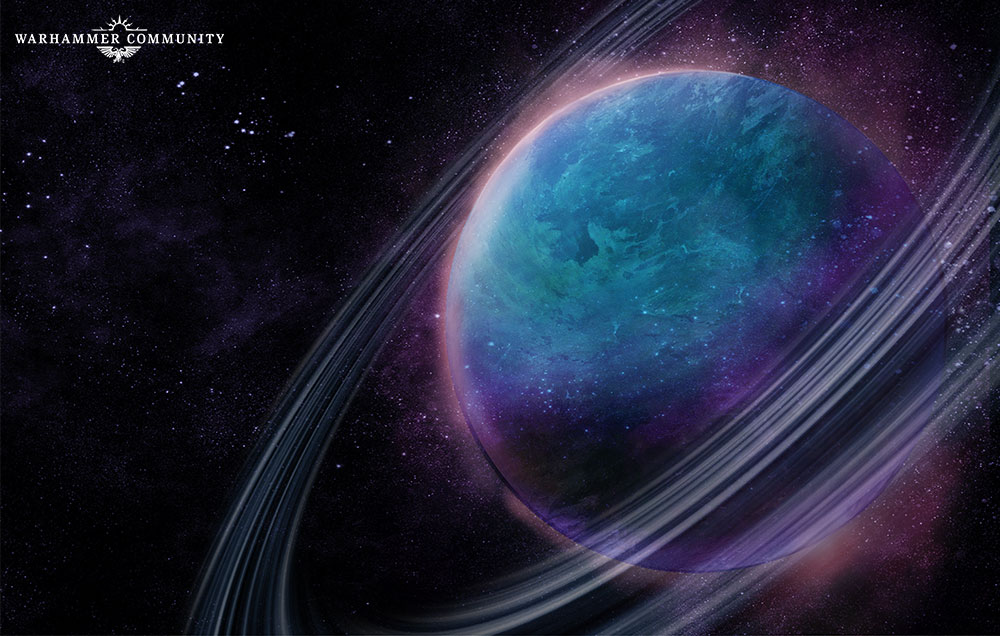
Lastly I just want to mention the fantastic section in the grave barrow of the Spears late in the book, where the Spears dedicated memorials to fallen brothers and write insulting poems about them beneath their statues. It was a surprising and refreshing moment of comedy, and if “Redden the earth!” captured the warlike spirit of the Spears so well, this little look into their more reflective side is a great way of showing their nature as brothers in arms.
If I had to pick up on one flaw in the book, I think it slightly overplays the “there’s definitely a sequel” hand, especially as we reach the latter sections. It’s not a technique exclusive to ADB (Bernard Cornwell often does the same thing; if you’ve ever read the Last Kingdom series you’ll know what I mean) but I probably didn’t need to hear it repeated quite so often here. I get it, ADB, I’ll buy your next book too.
Overall though, that’s a minor nitpick in what is a very good book. If you’re in the market for a surprisingly reflective piece of work which avoids bolter porn in favour of exploring the natures of Space Marines of very different traditions (and, if you’re a Warhammer 40,000 fan, you should be!) then this comes highly recommended.
That’s all from me; I’ll let Coda take you through his thoughts, as he considers some of the themes that really resonated with him.
Coda’s very spoiler heavy, cool and good thoughts on the book:
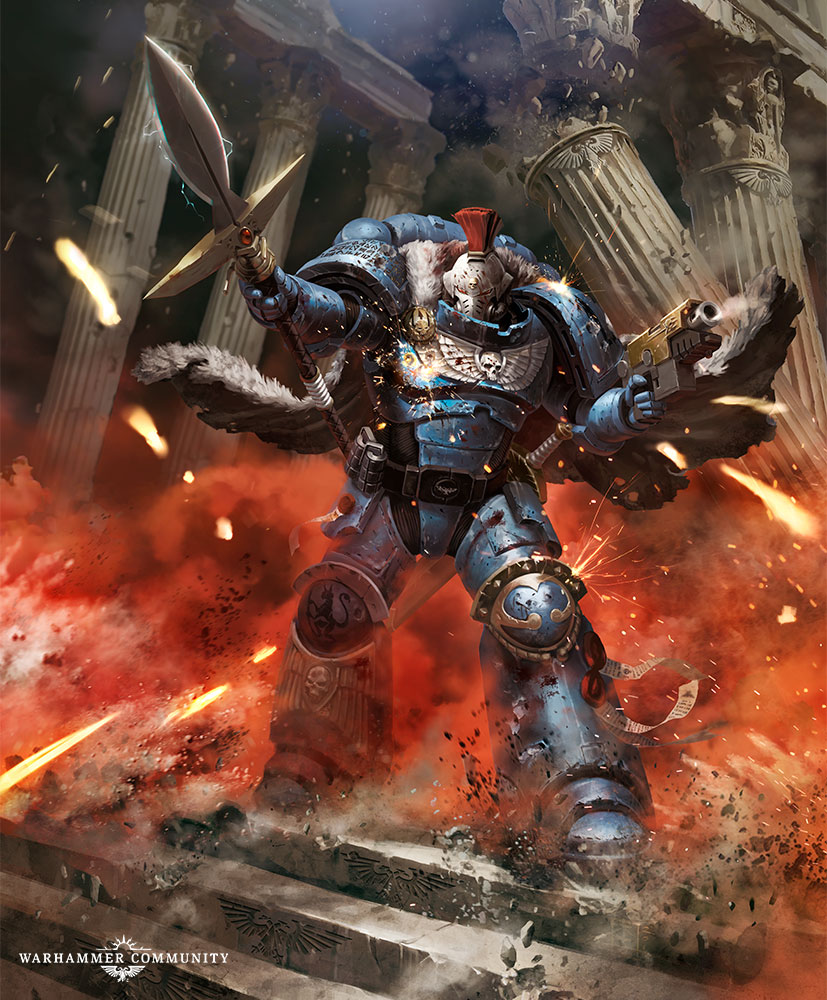
I’ll cut to the chase. Aaron Dembski-Bowden in my mind has created a masterpiece.
Corrode has terrifically reviewed the book’s narrative in the text above, so I’m going to take this opportunity to delve deeper into the book and look to be more personal with it. Again, we are going to be going into deep spoiler territory here, so read at your own risk.
As mentioned in the review above, Spears is a book of desperation, isolation, war and brotherhood. Yes, this is a book about Space Marines with roaring boltguns taking on the forces of Chaos, a fairly standard thing in Warhammer fiction. What separates this book from its peers is that we have a 40k book that doesn’t hide from its potential emotional and spiritual weight.
In its foreword Aaron talks about meeting with ex-service people, frontline medical staff, and others that have been through harrowing experiences in order to get details right, and I think that he may have been seeking to distill some of their hard won wisdom into the novel. With this in mind, I’m going to examine this against the book’s themes through the somewhat selfish lense of my own personal experience.
Spears frames itself in its prologue, featuring an aged Anuradha being tasked by Vadhán, a Spear, to chronicle her and the Mentor Legion Space Marine Amadeus’ arrival in Elara’s Veil. The tone between the two when the book flicks back to this point of time is friendly and kind. Anuradha feels free to challenge and joke with Vadhán, who reciprocates this level of camaraderie. She mocks him, challenging him that he wants a grand saga, while he makes light of her age. It is clear that these are two people that fundamentally know and care about each other and it provides the reader with a fantastic contrast for one of its primary relationships.
That contrast is Anuradha’s relationship with and perception of Amadeus, especially at the start of the book. Amadeus is an Astartes to the core, to the point of it being a flaw (more on that in a bit) with Anuradha merely existing in his eyes to enhance his wartime efficiency. She is as much a part of the Mentor Legion as the rounds for his bolter. She isn’t part of the chapter, she merely exists to serve it. Fraternization and questioning between the two is not only limited but utterly shut down by Amadeus and Anuradha’s direct superior, Kartash.
Is this divide a real thing though? In short, yes.
Anuradha’s service in the chapter while also not being part of it is similar in my experience of the military service personnel to supporting contractor divide. I personally work for my country’s Army and Navy but I would never, ever, even for a second consider myself to be a part of either organisation. The divide isn’t as extreme as the one between the Astartes and their chapter serfs but it is there. To pick one example of it coming up, I once made the mistake of wearing a squadron hat while at work. While I was never directly told not to do so, there was a comment made by an ex service co worker which made it clear that this was a faux pas on my part. I had overstepped an invisible but very real social boundary.
A number of times Anuradha does similar things. It’s interesting to see the reaction of early book Amadeus and Kartash vs the Spears when she does so. While Amadeus threatens Anuradha with censure, Brêac and the Spears gently encourage her to delve into and become part of their culture, going as far to reward her for acts they consider worthy.
So. On one hand we have a master and a slave. On the other end of the scale we have two old friends reminiscing as equals. Yet these are the same people. The book artfully bridges that gap, with walls that divide Anuradha/Amadeus breaking down as the Spears slowly and carefully integrate Amadeus and his crew into their culture and ranks.
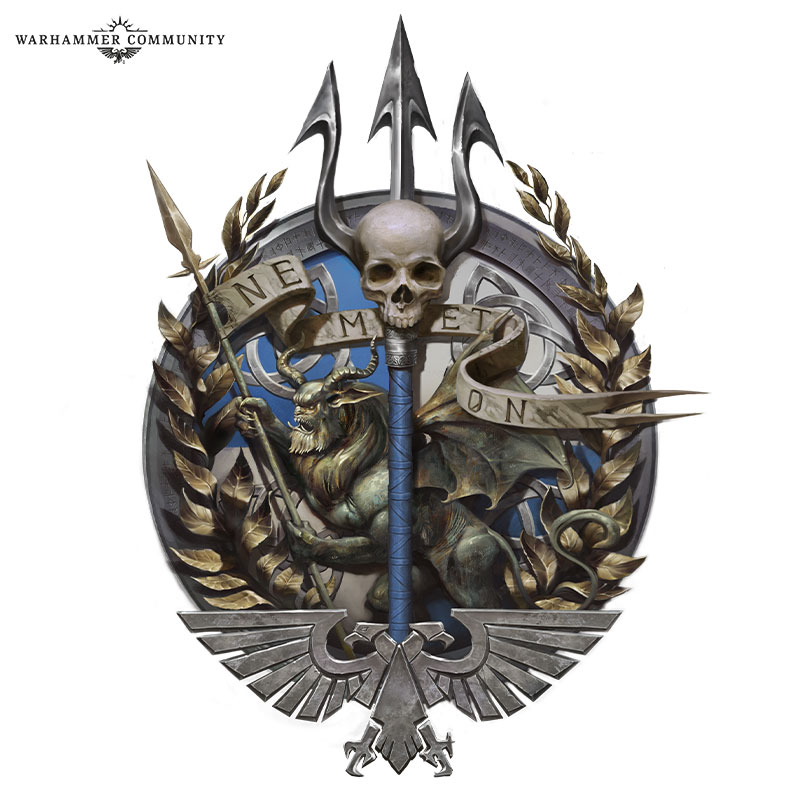
Speaking of that, one of the interesting things the book does is breakdown Amadeus and Anuradha physically and mentally, to the point where they are truly reborn by the book’s end. There is also a massive distinction between Amadeus and the Spears culturally and again this gap is closed throughout the book. To put it simply, the Mentor legion’s take on transhuman soldiering is vastly different to the Spears’ more traditional warrior culture.
The Mentors are data driven and are at the extreme end of the human-Astartes divide; they fight differently even to other Astartes, valuing efficiency above all and integrating helots like Anuradha into their way of war. Anuradha’s reaction to seeing Amadeus fight for the first time is to state “I never again made the mistake of confusing a Space Marine for a human,” after witnessing Amadeus brutally killing a heretical diplomatic mission, as disclosed in a flashback. She has this perception reinforced through her continued interactions with him. He is at the start, and for probably the first 2/3rds of the book, solely devoted to being a living weapon, which to him is the pinnacle of existence. This is echoed in the Mentor Legion’s culture, where ‘ascending’ to become ‘an angel’ is considered to be an honour and boon to one’s family. This character is fairly standard in 40k fiction. What happens to him in the book isn’t.
Brêac and the other Spears are different, and seem to retain a little more of their humanity. I wouldn’t go as far to say they are human, but they do seem to make more of an effort to not reduce themselves to being merely hyper efficient, emotionally stunted soldiers. Don’t get me wrong, they are still Space Marines, with all of the non-humanity that entails. However the Astartes of Nemeton are also warriors. They have traditional human soldier gallows humour. There is a more tribal brotherhood. They out right take the mickey out of each other, keeping egos in check. This humour based performance coaching is also aimed at Amadeus, who at first can’t seem to fully understand and process what’s going on. They don’t seek to purge themselves of the remnants of their humanity or their past before they became Astartes, instead they seem to want to preserve that part of it.
There is still a divide between them and their people, however it’s flipped on its head. To quote the book, “To be a Spear is a sacrifice, cast out of their clans. They’re not treated as gods but as ghosts”. The people of Nemeton are not in awe of their Astartes, instead viewing them as taboo, in direct contrast to the Mentor Legion. A terrific example of this is when Brêac takes Amadeus and Anuradha to meet the tribal crone seer on Nemeton, who proceeds to openly mock, spit towards and toy with the Astartes, labeling them condemned men.
This brings me to something that I don’t know if it was intentional, but I sure as hell hope it is. Amadeus’s chapter, the Mentor Legion, is based around working with, teaching and refining Imperial forces. What ends up occurring in the book is Brêac effectively takes Amadeus under his wing. Amadeus doesn’t seem to realise this but the Spear is trying to mentor him from the get go. I get the feeling Brêac wants Amadeus to loosen up and reclaim some of his lost humanity and, in his eyes, become a better warrior and person as a result.
I think initially a lot of these lessons are lost on the Mentor Legion Marine but are readily taken in by Anuradha. Amadeus is simply too sure of himself to feel the doubt necessary to grow in that way. It takes being utterly physically broken in the hands of the enemy and the healing that follows for Brêac’s wisdom to start making inroads, and then the crushing realisation that his chapter doomed him (and doomed him for nothing but the necessity of pleasing the Inquisition) for Amadeus to fully let the rains of Nemeton seep into his veins and become Vadhán. Anuradha on the other hand is more adaptable than Amadeus, and takes to Nemetonese culture more rapidly as a result, drawing strength from Tyberia’s leadership and Nemetonese culture during her captivity.
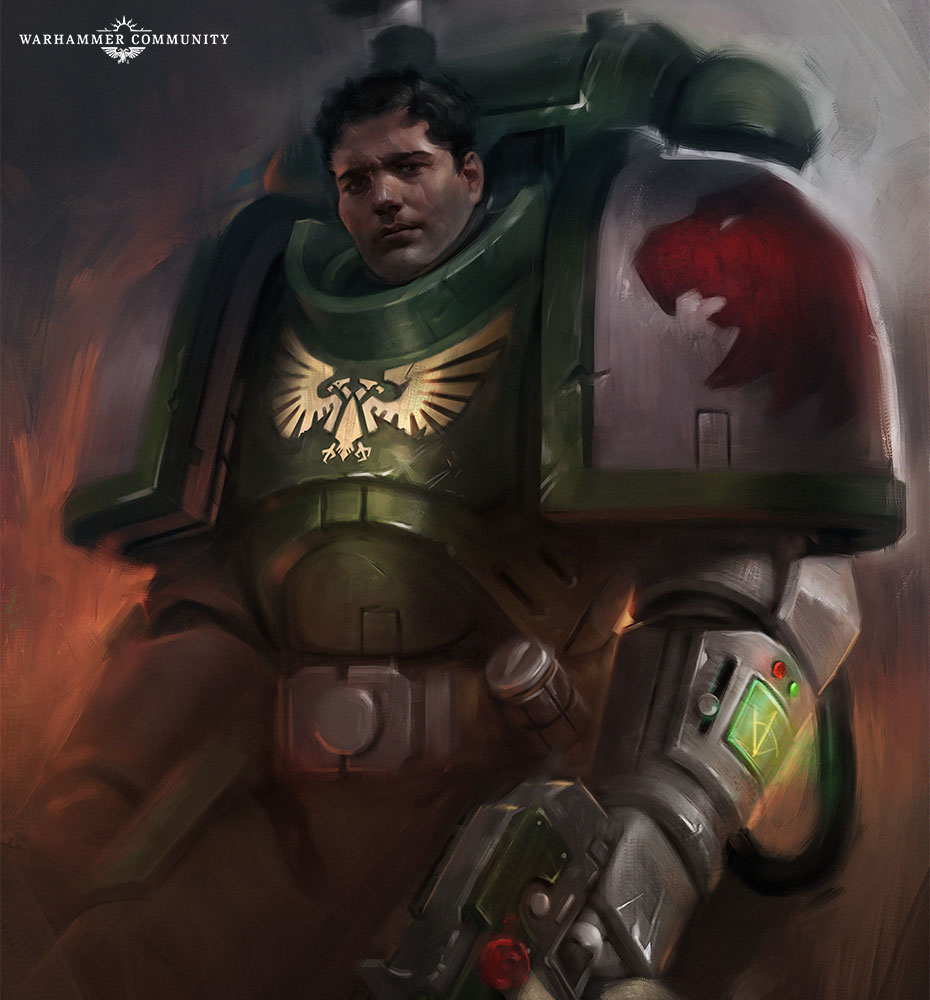
Again, I’m throwing out a second wild guess here, but I honestly think the book was aiming for a message that it’s ok to accept vulnerability, moving onto what’s next and accepting people that break the mould of what’s ‘normal’.The two moments where the two main characters of the book are physically broken and then rehabilitated, with the process taking time and being imperfect, is another area where Aaron’s research with veterans and medical staff shows though. It isn’t just the physical problems that Amadeus and Anuradha need to rehabilitate from, they both show classic signs of PTSD and the book doesn’t shy away from the fact that even with something as sci-fi magic as the Calgarian Rites, there isn’t a “press to become who you were before and fix your mind” button. Instead they work and continue to live with being the people they have become.
On that point, Serivahn is my favourite character of the book by a mile and the fact that the Spears not only accept who he is but empower him is bloody awesome. As someone that got knocked back from military service on account of undiagnosed scoliosis, and then had to mentally work out of the mindset that I was ‘broken and unsuitable” over the period of 5 years, I really, really wish I could have read the short story in the back of the collector’s edition at that time. Vectragos’ line of “He is in effect, a new template. Lesser, aye, perhaps. But not broken,.” is a powerful one that I wish I could slam into my 19 year old self’s headspace.
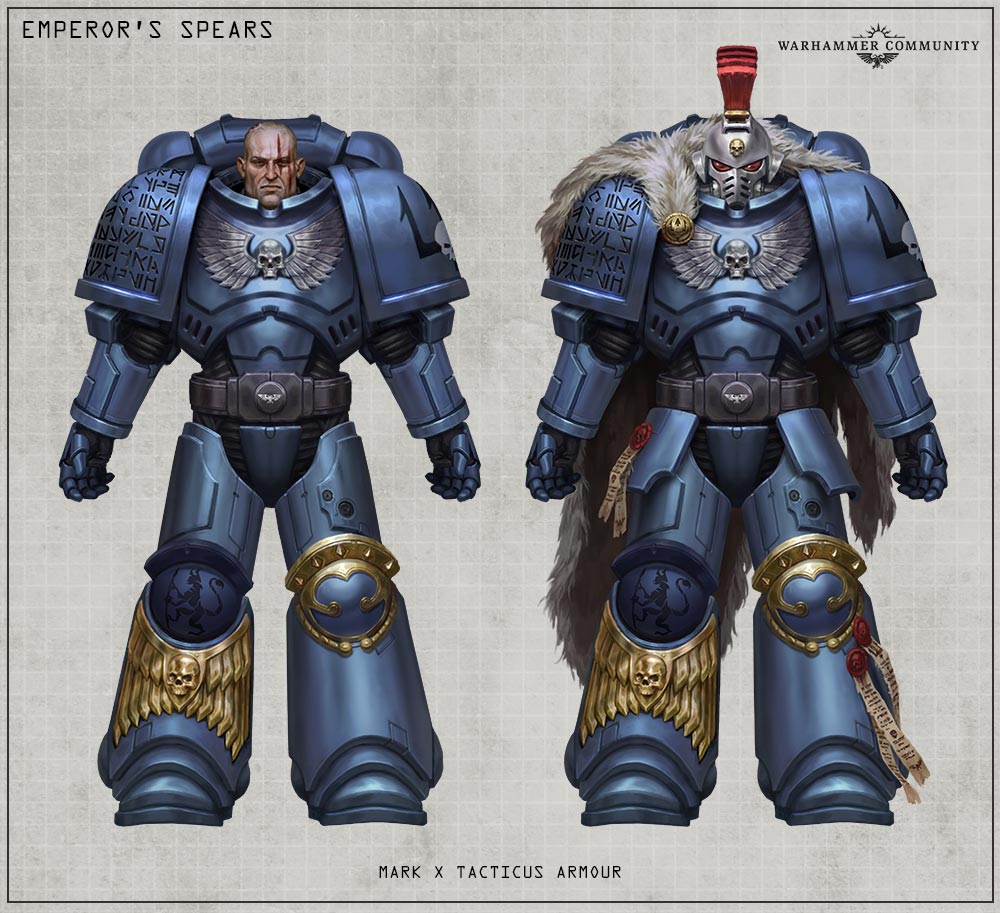
I wrote earlier that this book isn’t afraid of its emotional weight. There’s a lot to unpack here. Tyberia’s bravery and transformation to be an effective leader in the face of insane odds is moving, as is Amadeus’ reconstruction. I could write a lot (and have a little I guess) about the emotions I felt when I read these passages but instead I’m going to open up about the one that hit me the hardest. Strap yourself in reader, this is about to get real.
My heart broke when Anuradha talked of her younger brother and honestly it was to the point when I honestly put the book down and had to walk away. “When I’m one of them, Ana, we’ll live in the higher fortress. Sunlight every day. Never go hungry again,” is a tragic line in itself. The young boy doesn’t realise what his father and sister do. To become an angel of death is a terrible thing. You may never feel fear but you will also never feel the love of a family ever again. In other words, if he was ‘successful’ he would be sacrificing the very core of his humanity, a thing that he can not do. The real hit however came as Anuradha says “’They never told me what happened to him,’ I said, ‘but I knew. I knew it the moment they took him. He was too gentle, too caring to ever pass the trials.’”
This was the point where I put the book down and had a bit of a moment, for it echoed what my father said to me at 9, where I promised him on his literal deathbed that I would become as he was, a soldier; in that moment I saw him steal a tiny moment of perfect lucidity from his cancer. “Promise me that you won’t.” it took me 20 odd years and this book to finally fully understand what he meant by that and it fucking floored me. I never expected this realisation to come from a book about Space Marines but yet, here we are.
If you’re reading this and haven’t read the book yet, do yourself a favour and buy it. Eisenhorn is commonly cited as the series that fleshed out the non battlefield world of 40k and breathed life into the setting. In my opinion this book is the next evolution in Warhammer fiction by giving us content that you can really sit down and have deep thoughts about. I hope this novel blazes a path forward for more like in Black Library. It may not be the bolters galore action piece that people expect from the genre, but it’s exactly what this beautiful, deeply complex and multifaceted setting needs.
